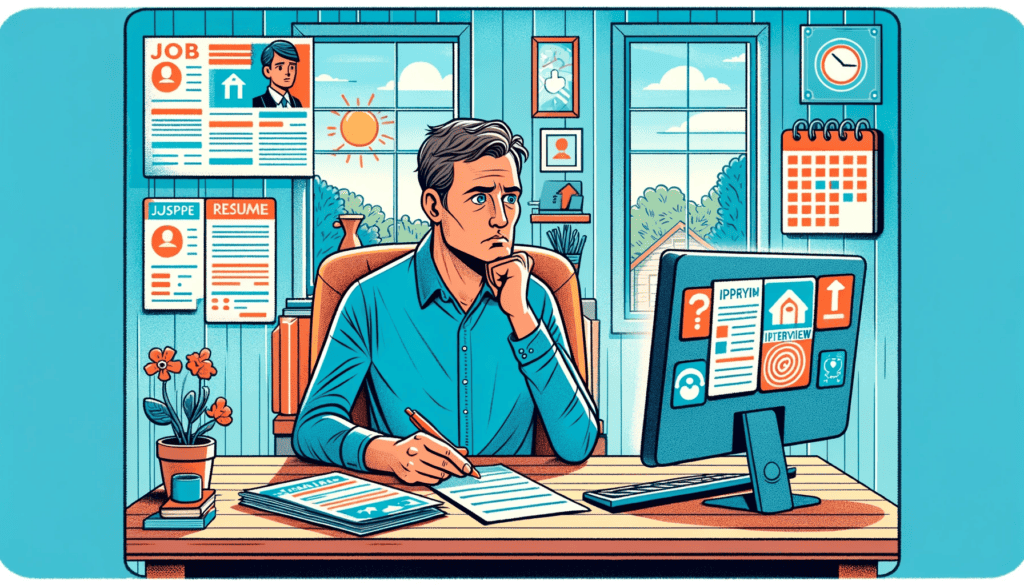
Understanding the Risks
The Financial Implications
Leaving a job without another one in place can lead to immediate financial instability. Without a steady income, you might struggle to cover basic expenses such as rent, groceries, and bills. This financial strain can quickly escalate into debt, affecting your credit score and long-term financial health.
Emotional and Psychological Effects
The uncertainty of not having a job can take a toll on your mental health. Stress, anxiety, and a sense of loss can emerge, impacting your daily life and relationships. The longer the job search takes, the more intense these feelings can become.
Impact on Career Trajectory
A gap in your resume can raise questions for future employers. They might wonder about the reasons for your unemployment and your decision-making skills. This can make it more challenging to find a job that matches your skills and career goals.
The Job Search Challenge
Lengthier Job Search
Finding a new job can take longer than expected. Without the security of your current job, you might feel pressured to accept a position that is not the right fit, just to avoid unemployment.
Limited Negotiating Power
When you’re unemployed, you might feel compelled to accept the first job offer, even if it’s below your qualifications or salary expectations. This lack of negotiating power can lead to job dissatisfaction and a sense of being undervalued.
Networking Difficulties
Being employed often provides networking opportunities that can lead to new job prospects. Without these connections, your job search can become more challenging.
Evaluating the Decision
Considering the Reasons
It’s crucial to reflect on why you want to leave your current job. Is it due to workplace issues, lack of growth opportunities, or personal reasons? Understanding your motivation can help you make a more informed decision.
Exploring Alternatives
Before quitting, explore other options such as addressing workplace issues, seeking a transfer, or even taking a sabbatical. These alternatives might offer solutions without the risks of unemployment.
Seeking Professional Advice
Consulting with a career coach or a mentor can provide valuable insights and guidance. They can help assess your situation and offer strategies for a smoother transition.
Preparing for the Transition
Financial Planning
Ensure you have enough savings to cover expenses for several months. This financial cushion can give you peace of time during your job search.
Skill Enhancement
Use this time to upgrade your skills or acquire new ones. This can make you more marketable and open up new job opportunities.
Building a Strong Network
Strengthen your professional network by attending industry events, joining professional groups, and connecting with former colleagues. A strong network can be crucial in finding your next job.
Emotional and Mental Well-Being
Managing Stress
The uncertainty of job searching can be stressful. Engage in activities that promote mental well-being, such as exercise, hobbies, or spending time with loved ones.
Staying Positive
Maintain a positive outlook and remind yourself of your skills and achievements. This mindset can boost your confidence during interviews and networking.
Seeking Support
Don’t hesitate to seek support from friends, family, or professionals. Talking about your concerns and experiences can provide relief and valuable perspectives.
The Bigger Picture
Long-Term Career Goals
Consider how this decision aligns with your long-term career goals. Sometimes, a strategic career move might involve short-term sacrifices.
Personal Growth Opportunities
This period can be an opportunity for personal growth. Reflect on your career path, reassess your goals, and explore new interests.
Flexibility and Adaptability
Being adaptable and open to change can lead to unexpected opportunities. Embrace this period as a chance to explore different career paths and industries.
Moving Forward
Strategizing Your Job Search
Develop a strategic job search plan. Identify the industries and roles that interest you, and tailor your resume and cover letter accordingly.
Utilizing Online Resources
Take advantage of online job boards, LinkedIn, and other digital platforms. They can be effective tools in finding job openings and connecting with potential employers.
Continuous Learning and Development
Stay updated with industry trends and continue developing your skills. This will not only enhance your resume but also keep you engaged and motivated.
Things to Consider
Emergency Plans
Have a backup plan in case your job search takes longer than anticipated. This could involve part-time work, freelancing, or temporary assignments.
The Value of Patience
Understand that finding the right job might take time. Patience is key in not rushing into unsuitable positions.
Reflecting on the Experience
Use this experience to gain insights into your career preferences and work-life balance. It can be a valuable learning opportunity for future career decisions.
Conclusion
Leaving a job without another one lined up is a significant decision that comes with various risks and challenges. It’s essential to weigh these factors carefully and prepare adequately for the transition. By considering the implications, preparing strategically, and maintaining emotional resilience, you can navigate this period effectively and move towards a fulfilling career path.






Leave a Reply